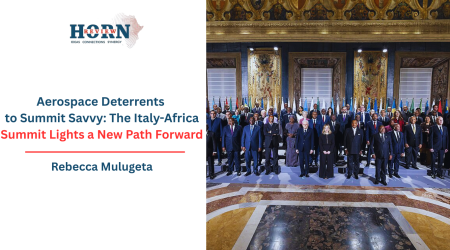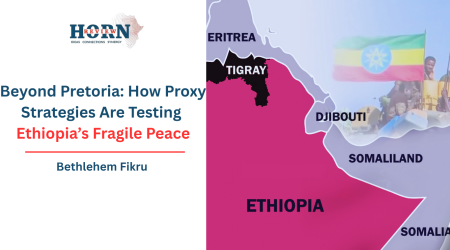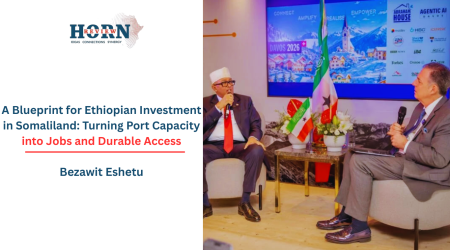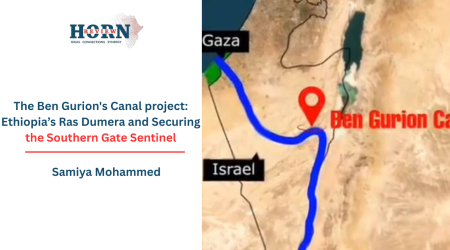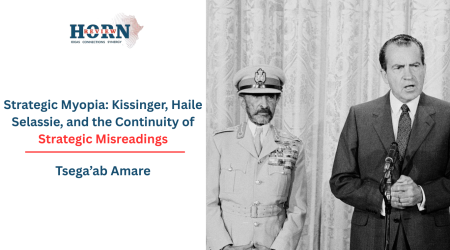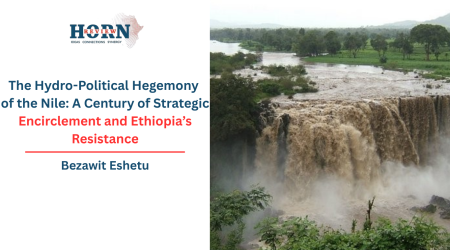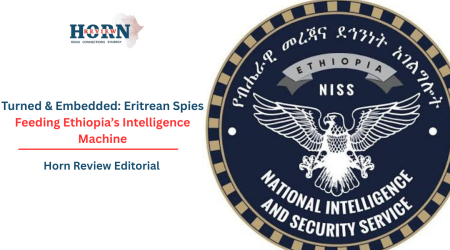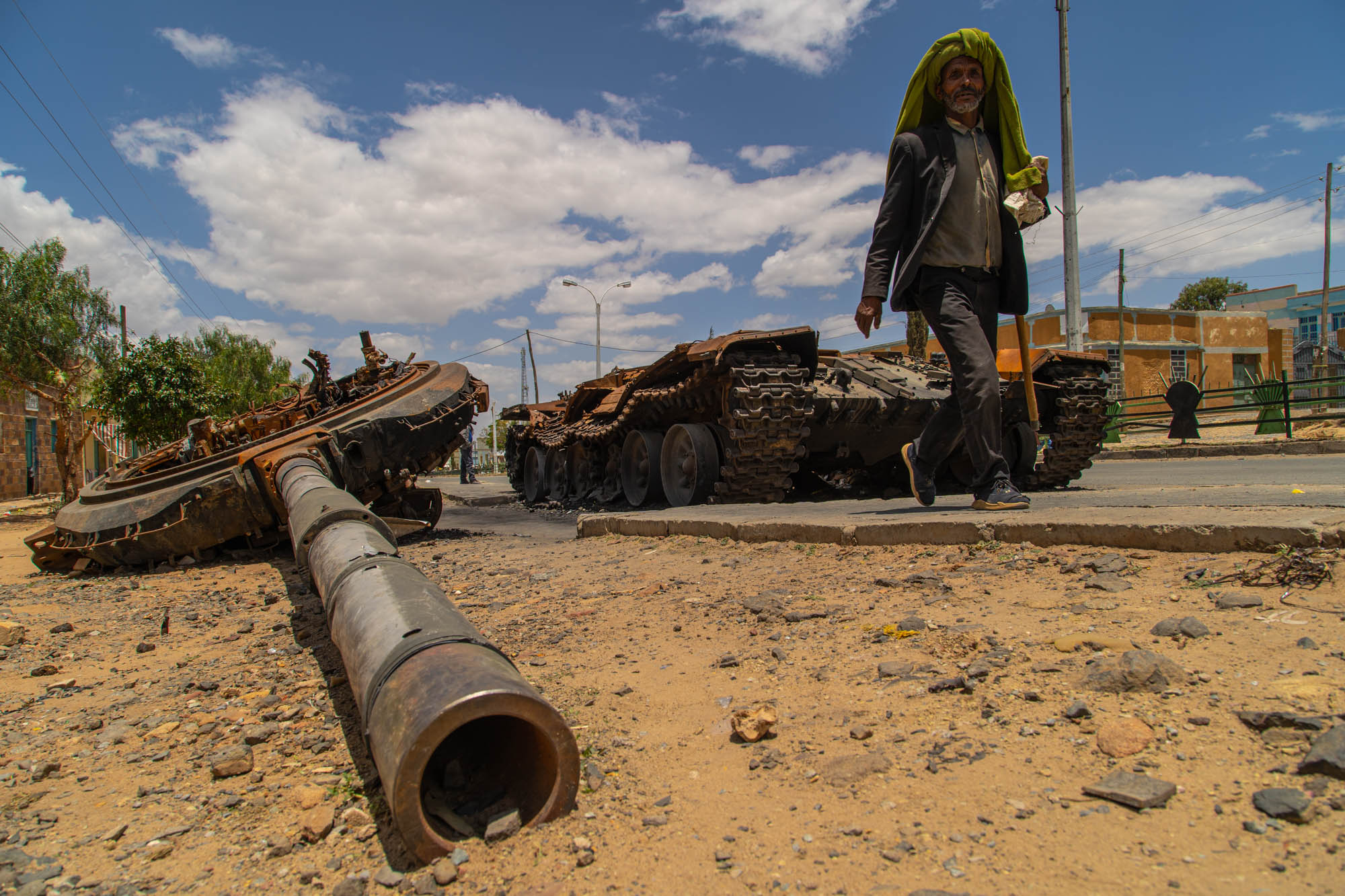
30
Jul
Early Warnings and Missed Chances: The Strategic Value of News Intelligence in eventing conflict
In the contemporary era of the digital realm, information is one of the most mighty tools a nation can possess. Access to accurate, real-time intelligence is the key to securing power and safeguarding sovereignty in the new millennium. History has manifested that off the battlefield, information wins wars and political contests. Ethiopia’s own past offers clear-cut instances from the Battle of Adwa, where information weakened and tore down Italian forces, to the collapse of the Derg regime, when the EPRDF leveraged crucial information making internal divisions between the Derg ministers to victory and power.
Yet, weighed against these successes, the dangers of overlooking or neglecting intelligence are grave and typically lethal. The attack on Pearl Harbor caught the United States by surprise, despite the fact that various diplomatic warnings had been intercepted beforehand. Similarly, before 9/11, key intelligence about al-Qaeda’s plans to weaponize aircraft was taken lightly. The Soviet Union disregarded alerts to Nazi Germany’s wholesale invasion in Operation Barbarossa, Stalin ignored multiple credible reports from the Soviet Union spies and Britain, even the German sources warning of the invasion, resulting in enormous loss (History.com, 2023). More recently, we saw how Iran ignored Turkish intelligence of intended Mossad operations in Tehran and was struck by debilitating attacks.
Ethiopia’s current conundrums resonate with these warnings. There was outright intelligence on the TPLF’s strategic plans and military capability during the Tigray war, but the government played down both. Bungling handling of local media and failure to properly engage with foreign media allowed hoax and propaganda to dominate global narratives (Al Jazeera, 2021), for which Ethiopia earned international criticism and sympathy for the TPLF. To add taunt to lesion, Ethiopia ignored mounting intelligence of Sudan’s incursion in the disputed Al-Fashaga region, focusing exclusively on the war in Tigray as vulnerabilities widened elsewhere.
This neglect of intelligence nowadays is in stark contrast to the EPRDF era when information was treated as a primary source of power. Conversations among people in taxis, on the streets and in cafes are considered a priority. Throughout that period , institutions from the Ministry of Foreign Affairs to the National Intelligence Service cooperated effectively, sharing crucial information across agencies and work simultaneously. Nowadays, intelligence coordination has collapsed MoFA and NISS no longer coordinate their sharing information efforts as they did during the EPRDF period, and warnings such as from attacks planned in Shashemene and Burayu were disregarded amidst clear signs of violent schemes in motion along ethnic lines. This disregard ushers in the radical question: is it a political blindness that is willful or a failure of misinformation?
Observing Passively the justifications for the radical war in Tigray, Political denial and hesitation have played a big part. The intelligence agencies were infiltrated by TPLF sympathizers during the Tigray war, and they sabotaged and misinterpreted key information. Not only that, the implicit faith in military might and economic power has blinded the government to emerging threats, dragging Ethiopia into unnecessary crises. Disjointed coordination between ministries and agencies, unlike the collaborative model of the EPRDF years, has also weakened Ethiopia’s ability to respond effectively. We have witnessed it ourselves the consequences that lead the TPLF to surprisingly attack the base of ENDF and assassinate soldiers and take armaments that are entrusted with national protection as a whole. Consequences are severe surprise attacks, escalating ethnic violence, loss of life, and erosion of public trust.
As of now Ethiopia faces a complex and hostile environment in the Horn of Africa. Local tensions brew with Somalia, Egypt, and Sudan putting pressure amid dispute over the Grand Ethiopian Renaissance Dam (GERD) and Ethiopia’s aspiration to secure access to the sea. Reports of ISIS militant recruitment from Ethiopia’s borders with Puntland and ongoing Ethiopian Eritrean animosity make for an ever more unstable security situation. In this volatile landscape, the prioritization of even small pieces of intelligence can be decisive in pre-empting crises. The bitter truth is that Ethiopia’s intelligence failures are not merely oversights, but are typically the result of deliberate sabotage, political reasons, or distrust among competing factions. These have cost many civilian lives and undermined the sovereignty of the nation at critical points. Just like the Amhara region war drags on and displaces many people and even results in devastation this is because of not giving priority first on capabilities of the factions and intelligence.
To reverse this precarious path, far-reaching reforms must be undertaken by Ethiopia urgently. Creating an integrated intelligence machinery that encourages open, cross-agency coordination is imperative and it should work together and exchange information. There should be an end to political interference within intelligence bodies to return professionalism and neutrality. Improving early-warning mechanisms and ensuring intelligence integrates foreign inputs with domestic realities will enable Ethiopia to anticipate threats ahead rather than react because some of the information is untrue and intended to direct the resource and action allocation from point A to another.
Furthermore, Ethiopia’s national security strategy cannot overlook the regional dynamics in the Horn of Africa. Forging genuine intelligence-sharing partnerships with allied nations, as the party drafted in cooperation with the neighbouring states in quest for regionalism Ethiopia must enhance diplomatic engagement will discourage external powers from exploiting Ethiopia’s vulnerability.
The cost of neglecting intelligence is human and existential. In the Pearl Harbor attack the US lost significantly, more than 2,400 Americans were killed, and more than 300 aircraft were destroyed (U.S. Naval History and Heritage Command, n.d.). The Soviet Union ignored the German onslaught and lost 3 million soldiers killed and captured and nazi Germany invaded vast territories of Ukraine, Belarus and western Russia. Ethiopia’s recent history also attests to the fact that information is not merely a tool but the foundation of national being, sovereignty, and peace. In an era marked by rapidly evolving threats and geopolitical competitions, Ethiopia’s future hangs on the rebalancing of the primacy of information, prioritizing intelligence, institutional transformation, and building trust among its citizens and allies. Only then will Ethiopia survive today’s tempests and secure a peaceful and prosperous tomorrow.
By Rebecca Mulugeta, Researcher, Horn Review
Further Reading
- Al Jazeera. (2021). Ethiopian Tigray Conflict: How Propaganda and Disinformation Shape the Narrative.
- History.com Editors. (2023). Operation Barbarossa. History.
- https://www.history.com/topics/world-war-ii/operation-barbarossa.
- U.S. Naval History and Heritage Command. (n.d). Attack on Pearl Harbor. & December 1941. Retrieved July 22, 2025, from U.S. Naval History and Heritage Command website.

